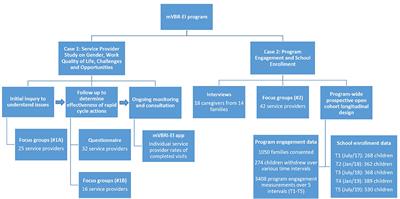|
Σφακιανάκης Αλέξανδρος
ΩτοΡινοΛαρυγγολόγος
Αναπαύσεως 5 Άγιος Νικόλαος
Κρήτη 72100
00302841026182
00306932607174
alsfakia@gmail.com
Αρχειοθήκη ιστολογίου
-
►
2023
(391)
- ► Φεβρουαρίου (200)
- ► Ιανουαρίου (191)
-
►
2022
(2843)
- ► Δεκεμβρίου (161)
- ► Σεπτεμβρίου (219)
- ► Φεβρουαρίου (264)
- ► Ιανουαρίου (280)
-
►
2021
(5625)
- ► Δεκεμβρίου (231)
- ► Σεπτεμβρίου (345)
- ► Φεβρουαρίου (620)
-
▼
2020
(2065)
- ► Δεκεμβρίου (535)
-
▼
Νοεμβρίου
(733)
-
▼
Νοε 29
(33)
- Moderately Hypofractionated Radiotherapy with Simu...
- Impact of Commercialized Genomic Tests on Adjuvant...
- Chemotherapy Options beyond the First Line in HER-...
- Tetrandrine Inhibits Titanium Particle-Induced Inf...
- Driver Distraction Detection Method Based on Conti...
- Chronic Urticaria and Its Impact on the Quality of...
- Vaccines, Vol. 8, Pages 709: Bacterial Immunogenic...
- Bioinspired Synthesis of Acacia senegal Leaf Extra...
- A three-dimensional mechano-electrochemical materi...
- The Prevalence and Causes of Visual Impairment in ...
- Effect of Pomegranate Juice on the Manufacturing P...
- Genetic Testing Distinguishes Multiple Chondroid C...
- Research on Acoustic Emission Characteristics and ...
- An Unusual Complication in Plastic Periodontal Sur...
- Research Progress Review of Preparation and Applic...
- A Novel Cryptococcal Meningitis Therapy: The Combi...
- Quantification of DNA through the NanoDrop Spectro...
- Biochemical Constituents of Phaleria macrocarpa (L...
- The Rise of Transradial Artery Access for Percutan...
- Increased Frequencies of Switched Memory B Cells a...
- The Importance of the Deep Deltoid Ligament Repair...
- Matcha Improves Metabolic Imbalance-Induced Cognit...
- Prophylaxis of Pain and Fractures within Feet in t...
- Glucose Required for Tissue Formation and Its Effe...
- Effects of SMILE Surgery on Intraocular Pressure, ...
- Urgent need to develop evidence-based COVID-19 rec...
- Health State Utilities of Patients with Heart Fail...
- Effect of manual aspiration thrombectomy using lar...
- Lost in Transition: Health Care Experiences of Adu...
- Retrospective Assessment of Risk Factors for Head ...
- Rapid-Cycle Evaluation in an Early Intervention Pr...
- Prediction of Epidemics Trend of COVID-19 in Bangl...
- Hyoscine butylbromide versus acetaminophen for non...
-
▼
Νοε 29
(33)
- ► Σεπτεμβρίου (222)
- ► Φεβρουαρίου (28)
-
►
2019
(9608)
- ► Δεκεμβρίου (19)
- ► Σεπτεμβρίου (54)
- ► Φεβρουαρίου (3791)
- ► Ιανουαρίου (3737)
-
►
2018
(69720)
- ► Δεκεμβρίου (3507)
- ► Σεπτεμβρίου (3851)
- ► Φεβρουαρίου (8116)
- ► Ιανουαρίου (7758)
-
►
2017
(111579)
- ► Δεκεμβρίου (7718)
- ► Σεπτεμβρίου (7549)
- ► Φεβρουαρίου (10753)
- ► Ιανουαρίου (10529)
-
►
2016
(16402)
- ► Δεκεμβρίου (7478)
- ► Φεβρουαρίου (900)
- ► Ιανουαρίου (1250)
! # Ola via Alexandros G.Sfakianakis on Inoreader
Η λίστα ιστολογίων μου
Κυριακή 29 Νοεμβρίου 2020
Rapid-Cycle Evaluation in an Early Intervention Program for Children With Developmental Disabilities in South India: Optimizing Service Providers' Quality of Work-Life, Family Program Engagement, and School Enrollment
Εγγραφή σε:
Σχόλια ανάρτησης (Atom)
Αρχειοθήκη ιστολογίου
-
►
2023
(391)
- ► Φεβρουαρίου (200)
- ► Ιανουαρίου (191)
-
►
2022
(2843)
- ► Δεκεμβρίου (161)
- ► Σεπτεμβρίου (219)
- ► Φεβρουαρίου (264)
- ► Ιανουαρίου (280)
-
►
2021
(5625)
- ► Δεκεμβρίου (231)
- ► Σεπτεμβρίου (345)
- ► Φεβρουαρίου (620)
-
▼
2020
(2065)
- ► Δεκεμβρίου (535)
-
▼
Νοεμβρίου
(733)
-
▼
Νοε 29
(33)
- Moderately Hypofractionated Radiotherapy with Simu...
- Impact of Commercialized Genomic Tests on Adjuvant...
- Chemotherapy Options beyond the First Line in HER-...
- Tetrandrine Inhibits Titanium Particle-Induced Inf...
- Driver Distraction Detection Method Based on Conti...
- Chronic Urticaria and Its Impact on the Quality of...
- Vaccines, Vol. 8, Pages 709: Bacterial Immunogenic...
- Bioinspired Synthesis of Acacia senegal Leaf Extra...
- A three-dimensional mechano-electrochemical materi...
- The Prevalence and Causes of Visual Impairment in ...
- Effect of Pomegranate Juice on the Manufacturing P...
- Genetic Testing Distinguishes Multiple Chondroid C...
- Research on Acoustic Emission Characteristics and ...
- An Unusual Complication in Plastic Periodontal Sur...
- Research Progress Review of Preparation and Applic...
- A Novel Cryptococcal Meningitis Therapy: The Combi...
- Quantification of DNA through the NanoDrop Spectro...
- Biochemical Constituents of Phaleria macrocarpa (L...
- The Rise of Transradial Artery Access for Percutan...
- Increased Frequencies of Switched Memory B Cells a...
- The Importance of the Deep Deltoid Ligament Repair...
- Matcha Improves Metabolic Imbalance-Induced Cognit...
- Prophylaxis of Pain and Fractures within Feet in t...
- Glucose Required for Tissue Formation and Its Effe...
- Effects of SMILE Surgery on Intraocular Pressure, ...
- Urgent need to develop evidence-based COVID-19 rec...
- Health State Utilities of Patients with Heart Fail...
- Effect of manual aspiration thrombectomy using lar...
- Lost in Transition: Health Care Experiences of Adu...
- Retrospective Assessment of Risk Factors for Head ...
- Rapid-Cycle Evaluation in an Early Intervention Pr...
- Prediction of Epidemics Trend of COVID-19 in Bangl...
- Hyoscine butylbromide versus acetaminophen for non...
-
▼
Νοε 29
(33)
- ► Σεπτεμβρίου (222)
- ► Φεβρουαρίου (28)
-
►
2019
(9608)
- ► Δεκεμβρίου (19)
- ► Σεπτεμβρίου (54)
- ► Φεβρουαρίου (3791)
- ► Ιανουαρίου (3737)
-
►
2018
(69720)
- ► Δεκεμβρίου (3507)
- ► Σεπτεμβρίου (3851)
- ► Φεβρουαρίου (8116)
- ► Ιανουαρίου (7758)
-
►
2017
(111579)
- ► Δεκεμβρίου (7718)
- ► Σεπτεμβρίου (7549)
- ► Φεβρουαρίου (10753)
- ► Ιανουαρίου (10529)
-
►
2016
(16402)
- ► Δεκεμβρίου (7478)
- ► Φεβρουαρίου (900)
- ► Ιανουαρίου (1250)



Δεν υπάρχουν σχόλια:
Δημοσίευση σχολίου